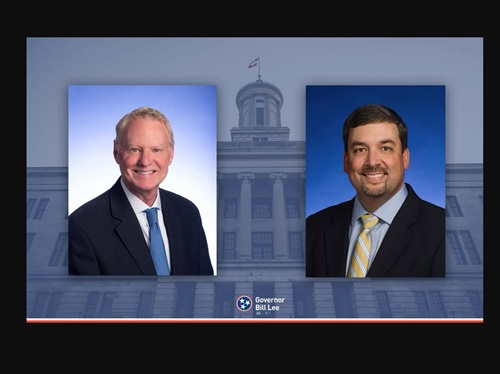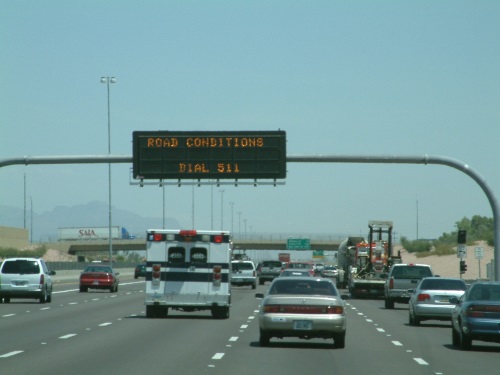The Arizona Department of Transportation announced two winners of its third annual “Safety Message Contest” on June 14; a contest that seeks a “clever play on words” to encourage the adoption of safer motor vehicle operator habits.
After tallying more than 5,000 votes for the 15 safety message finalists, the winners were Mitzie Warner of Chandler, AZ, for ‘DRIVE LIKE THE PERSON YOUR DOG THINKS YOU ARE’ and David Posey of San Tan Valley, AZ, for ‘DRINK & DRIVE? MEET POLICE AND SEE NEW BARS.’
Both Warner and Chandler were invited to the Arizona DOT’s Traffic Operations Center where they had the opportunity to type their messages into highway overhead messages board system.

Warner said in a statement she was “excited” when she heard about the contest and admitted to “probably overthinking it” before coming up with her winning message. “Dogs see the best in us,” she explained. “If we all drove like the people they believe us to be – a little nicer, a little more courtesy – it’d be much better.”
Posey noted that he isn’t a stranger to safety, as he’s worked in mining for two decades and said every meeting he’s been to starts off with a “safety share” message.
“I just want everyone to know with all the options we have out there today, like Uber and Lyft,” Posey emphasized. “There is no sense in risking hurting someone else or yourself.”
“These messages are wonderful and because the public invested their time into voting for their favorites, hopefully they carry a little more meaning and drivers will take the messages to heart when they see them this weekend over Arizona’s highways,” noted John Halikowski, Arizona DOT’s director. “Even as a cat owner, I can appreciate the sentiment of wanting to live up to being the people our pets believe us to be.”
He added that displaying traffic safety messages on overhead signs is one way his agency and other traffic safety stakeholders in Arizona are trying to change driver behavior. According to the National Highway Traffic Safety Administration, more than 90 percent of vehicle collisions are caused by driver decisions, including choosing to speed, drive recklessly, distracted or impaired.
 States
States


